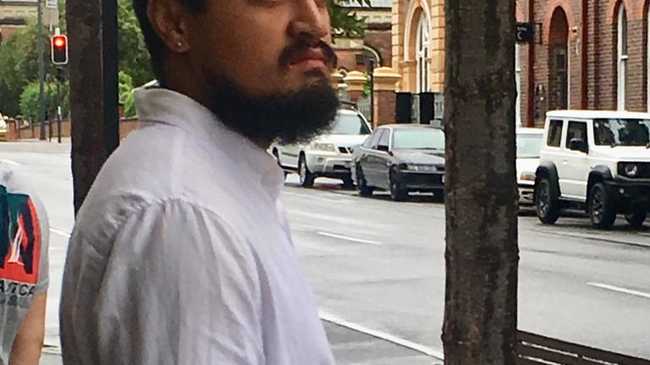Sharron Phillips investigation: Police announce taxi driver Raymond Mulvihill murdered the Queensland woman
THE man Queensland police say murdered Sharron Phillips confessed the crime to his son on his deathbed 15 years ago. But, in an exclusive interview, the son admits he’d known about the crime for much longer.
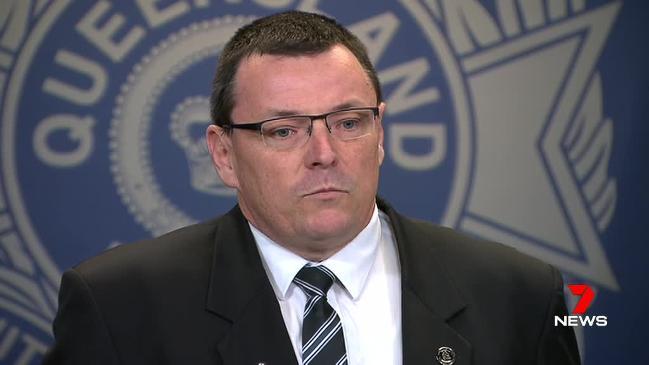
Crime & Justice
Don't miss out on the headlines from Crime & Justice. Followed categories will be added to My News.
THIS is the man who murdered Sharron Phillips.
Detectives have sensationally announced they have solved one of Queensland’s most enduring murder mysteries, naming taxi driver Raymond Mulvihill as the man who abducted and murdered Sharron 30 years ago.
They say they now have enough evidence to charge Mulvihill with murder — but can’t because he died in 2002.
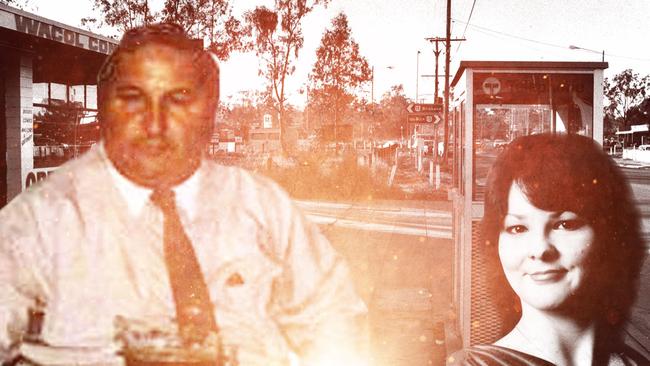
Homicide Detective Inspector Damien Hansen today said: “Raymond Peter Mulvihill died in 2002. As a result of the investigation (and) the evidence that we have gathered, if Raymond Peter Mulvihill was alive today, he would be arrested for the murder of Sharron Phillips.
“I’ve briefed the coroner on the investigation. We will be forwarding a report in due course. As such I will not be discussing the evidence against Mulvihill today.
“We will continue to investigate the possibility that any other person has assisted Mulvihill in this offence, or has provided him with assistance after the offence.
“I urge anyone with any information on Raymond Peter Mulvihill or the Ascot taxi to contact Crime Stoppers.
“Investigators would also like to speak to former residents, neighbours of Mulvihill who resided at Russell Dr, Redbank Plains, in particular a neighbour by the name of Jim.
“And I will stress that Jim is not a person of interest in this investigation.
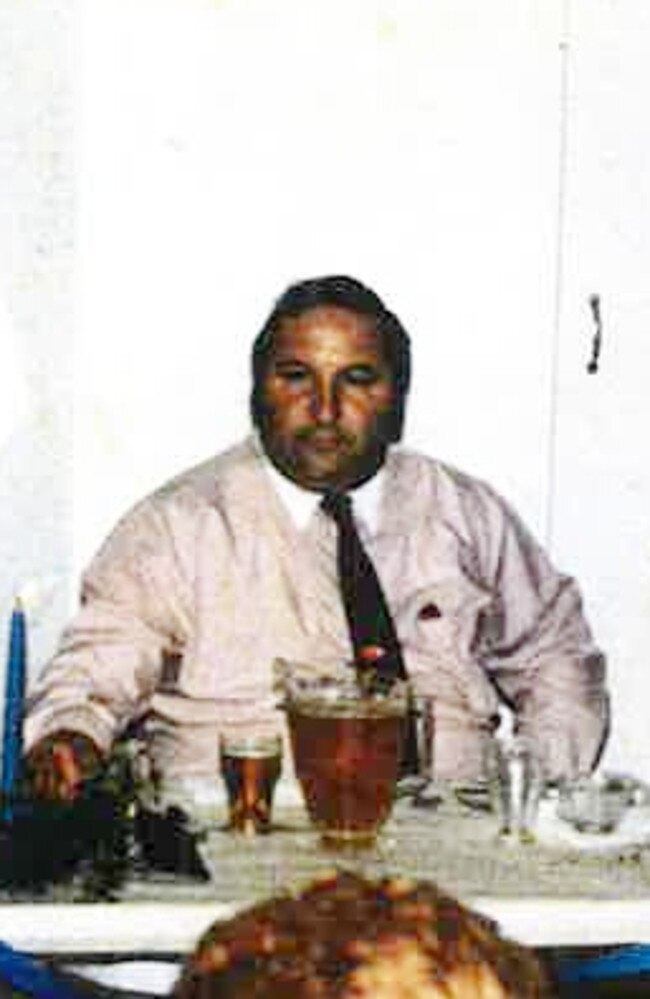
“We’d also like to speak to the person, who in 1990, purchased a HK, brown and white sedan.
“That vehicle was stolen from the person shortly after purchase and located burnt out.
“Finally, I’d like to take the opportunity to acknowledge the good work, the hard work, that’s gone into this investigation from the Cold Case team.
“I’d also like to acknowledge the original investigators and all those who have worked on this over the years.”
It is understood police have spent the past year investigating details of a deathbed confession Mulvihill made to his son 15 years ago.
In it, he claimed he murdered Sharron after abducting her from the Wacol phone box where she made two calls on the night she disappeared in 1986.
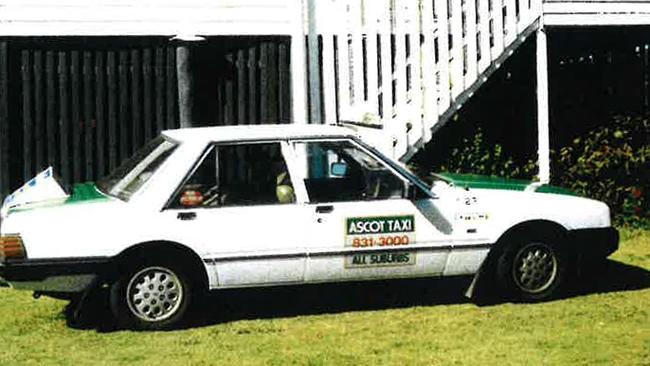
Sharron disappeared after her car ran out of petrol on Ipswich Rd. She found a phone box outside a small group of shops on Wacol Station Rd and used it to call her boyfriend.
Sharron’s boyfriend left to pick her up soon after but got lost and was further delayed by a flat tyre. Sharron called again an hour later, at 12.08am, but was told by a flatmate that he had left some time ago.
It was then that police believe Sharron spotted Mulvihill in his taxi turning into the driveway beside the shops. Detectives believe she approached the taxi driver in the hope he would take her home.
The case will now be referred to the coroner — although police believed they have gathered substantial evidence in the past 12 months that verifies Mulvihill’s confession to his son.
Sharron’s family — some of who accused their own father of the murder — were briefed on the development this morning.
Mulvihill’s son, Ian, told The Courier-Mail he had tried for years to convince people his father was responsible for the infamous murder.
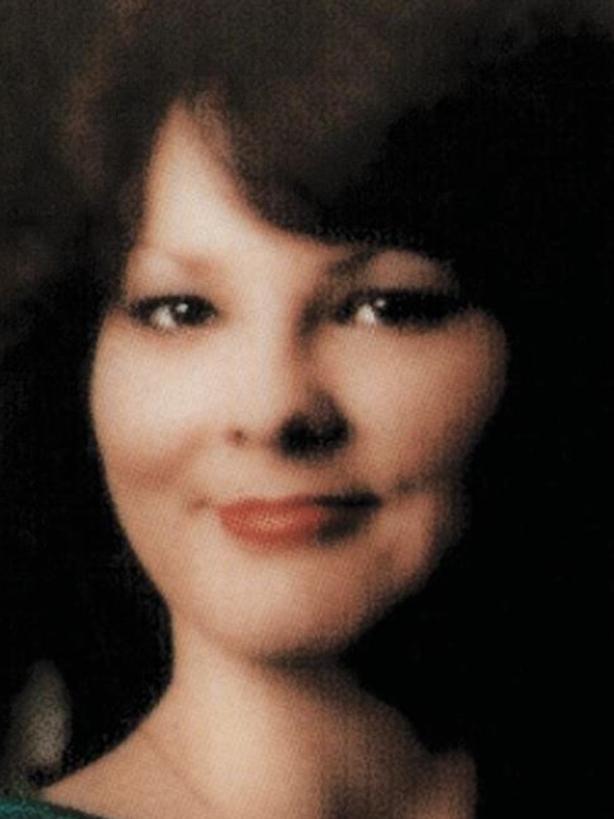
He said he had followed his father to the Wacol shops the night she disappeared after running into him in his taxi at a set of lights outside the Princess Alexandra Hospital.
Mulvihill was the night driver of a taxi and would park it behind the shops for the day driver to use the following morning.
On this night, Ian said his father asked him to collect him from the shops and drive him back to the family’s Redbank Plains home.
But on the way, Ian was delayed when he was pulled over by the police.
He arrived at Wacol shortly after his father, who he said took his car behind the shops, telling him to wait out the front.
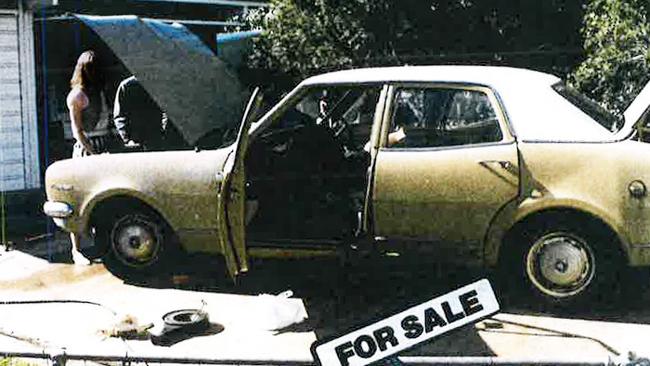
Minutes later, his father drove his car out — a brown and white HK Holden — and told Ian to get behind the wheel.
“He drives down the driveway, arm on the side, stereo on, smiling, (and said) ‘alright boy, let’s go, you’re driving’,” Ian said.
“He was having a good night.”
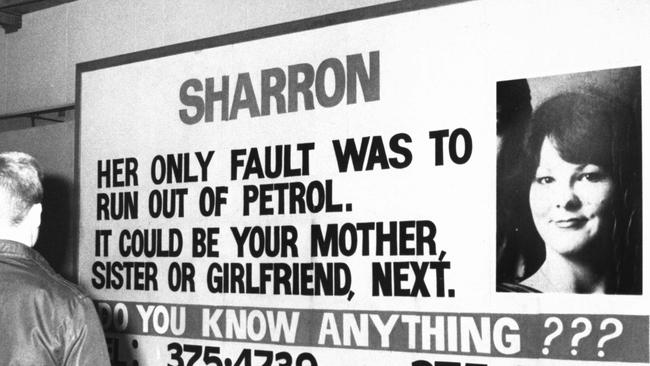
Ian insisted he did not see his father put Sharron in the boot of his car. But he said he heard banging noises coming from the boot as they drove away.
He said when he asked his father about it, Mulvihill responded by turning the stereo up.
When the banging continued, Ian said he pulled the car to the side of the road and got out, only to have his father pull out a knife.
“He pulls a knife out of his little green bag, taps it on the window and says ‘f*** off, I’ll kill you both, get back in’,” Ian said.
“I don’t know how she was in the boot. I don’t know how she was taped.
“He said you just keep going. Your shit is your shit, my shit is my shit.
“So I just drove home. With the stereo pumping.
“He just pushed me over outside our house, he got in the car and he drove off.”
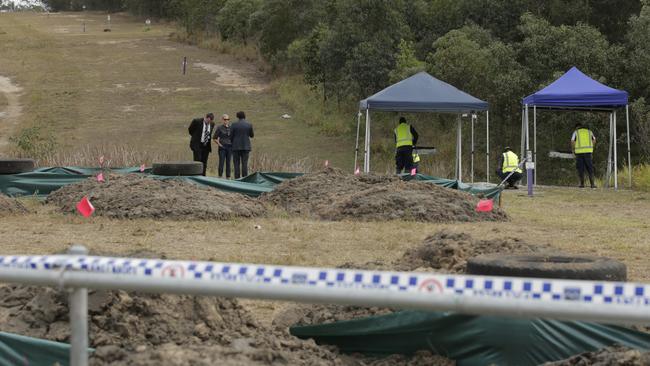
Mulvihill is believed to have murdered Sharron at an unknown location before moving her body to a stormwater drain at Carole Park in the following days.
Police searched the drain last year but it appeared it had been cleared years earlier.
Ian said his father asked him to go to police about the murder shortly before his death from bowel cancer in 2002.
He said his father claimed to have murdered others — although police have not been able to link the taxi driver to other victims.
“On his death bed he said, you need to come forward and tell them about these girls,” Ian said.
He said his father told him: “We’ve got to give the girls back.”
“(I said) So you can go up there and see the big man and you’ll be alright because I fixed everything for you?
“And he looked me in the eye and said, ‘I don’t know anyone else who could do it’.”
Ian described himself as an “unwilling accessory” to Sharron’s abduction. He said he was 19 and had been threatened at knifepoint by a violent man.
“I lived with a murderer. I had to be careful about what I said, what I did,” he said.
“I needed the police to come grab him and take him away and me to never see him again.”

